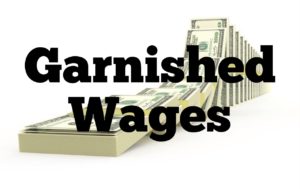By: Robert J. Nahoum
THE PROBLEM
The economy has been rough for so many working people. Like many others you relied on credit cards to make ends meet between jobs. Now that you’re working again, you’re trying to pick up the pieces. The credit card companies don’t care what your story is, they don’t care how you got where you are; all they care about is getting paid. So when you fell behind on your bills, they sued you. Now you have judgments against you and the creditors want to garnishee your wages.
THE RULES
In order to garnishee your wages, the judgment creditor serves a document called an “income execution†on the Sheriff or Marshal (in NYC it goes to the Marshal everywhere else it goes to the Sheriff). The income execution basically says that a judgment is entered against you and provides the identity of your employer. Once the Sheriff or Marshal receives the income execution, a two stage process kicks in:
STAGE ONE:
Under stage one, the Sheriff or Marshal serves you with a copy of the income execution giving you 20 days to voluntarily surrender 10% of your take home wages.
STAGE TWO:
If you don’t comply with the stage one demand for voluntary compliance, stage two kicks in and the income execution goes to your employer. Your employer is then directed to turnover to the Sheriff or Marshal 10% of each paycheck.
When there are 2 or more judgment creditors trying to enforce their own judgments, only one will be entitled to attach your wages. Priorities are set by date of delivery of the income execution to the Marshal or Sheriff.  So, whichever judgment creditor delivers there income execution to the Marshal or Sheriff first will be first in line to garnishee your wages.
It is important to understand that in New York, post judgment interest is accrues at 9% per year. A consumer with 10% of wages garnisheed while accruing interest at 9% (with other judgments waiting in the wings also accruing 9% interest) creates endless cycle of garnisheed wages. For all practical purposes, you will never satisfy multiple judgments through wage garnishments and will indefinitely be paying 10% of your wages to creditors.
WHAT YOU SHOULD DO
Judgments and judgment creditors can be dealt with one at a time. You can try to vacate all of the judgments and fight each case. However, if you have multiple creditors and mounting debt, a piecemeal approach is unlikely to get your head above water. For this reason, you should consider whether bankruptcy is the right choice for you. Under Chapter 7 bankruptcy, you can put an end to wage garnishment, stop all debt collection lawsuits and eliminate most unsecured debts.
If you need help settling or defending a debt collection law suit, filing for bankruptcy, stopping harassing debt collectors or suing a debt collector, contact us today to see what we can do for you. With office located in the Bronx, Brooklyn and Rockland County, the Law Offices of Robert J. Nahoum defends consumers in debt collection cases throughout the Tristate area including New Jersey.
The Law Offices of Robert J. Nahoum, P.C
(845) 232-0202
www.nahoumlaw.com

